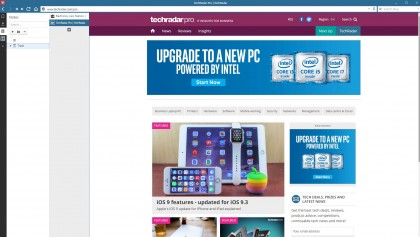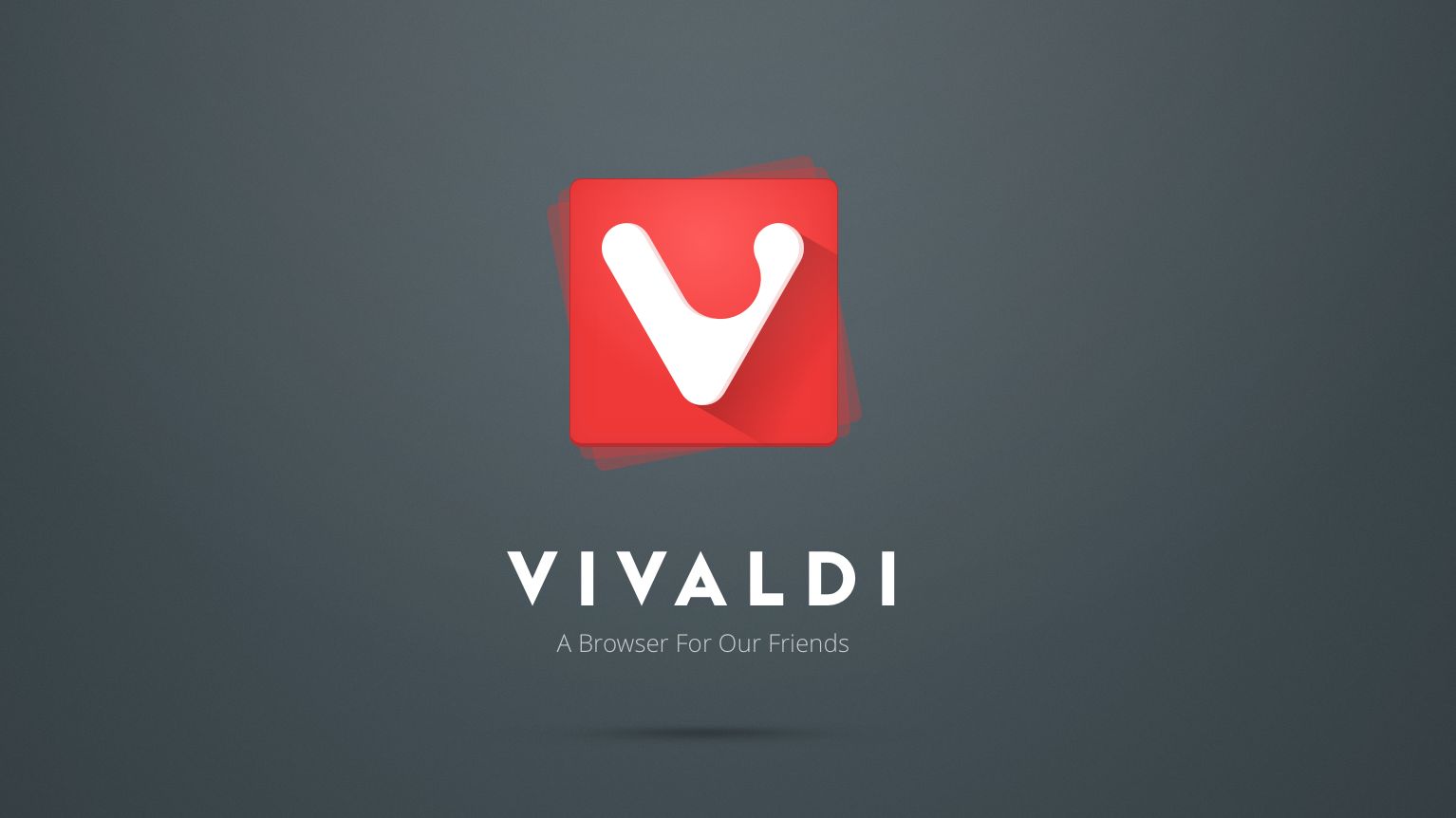This new browser wants to change the way you live online
A nimble but mighty rival takes on Chrome and Firefox

I have one regret after meeting with Jon Von Tetzchner, the co-founder of the popular Opera browser, about his new venture - I didn't ask him why he chose to call it Vivaldi. While the operatic link is obvious, the choice of an Italian composer, best known for his Four Seasons concertos is far less.
To launch a web browser in this day and age might be seen as a folly, especially when the product itself is free and there's a plethora of very big players out there: Chrome, Internet Explorer, Edge, Safari and Firefox just to name a few.
But Jon is not your usual tech CEO. For a start, he is well placed in that industry with a wealth of experience and a unique perspective as one of the most respected players in that market.
Opera, a browser used by more than 350 million users worldwide daily, was his baby, one that launched more than two decades ago.
The browser introduced speed dial, pop-up blocking, private blocking and tabbed browsing among major browsers (the now-defunct Netcaptor introduced tab browsing).
Now he's betting on making lightning strike again with Vivaldi and given the positive reception that the first iteration received from the tech press (Recode, Ars Technica, Gizmodo, PC Mag), it looks like Jon is on the right path. "I don't do that for money," he told me as he sipped his glass of coke.
He couldn't find a browser he'd like to use so he started a journey he was familiar with: build a browser that would appeal to power users. Vivaldi, like Opera, will almost certainly never be a mass market product and that can only be a good thing.
Are you a pro? Subscribe to our newsletter
Sign up to the TechRadar Pro newsletter to get all the top news, opinion, features and guidance your business needs to succeed!
Jon reckons that only a few million active users, a fraction of what Goliaths like Chrome or Safari gather, would be enough for the company to break even. Which is why some of what Vivaldi is doing might seem odd.
Doing things differently
For a start, it is a desktop-only browser with mobile expected to come next year. It is not open source like Firefox and Chromium – which is at the core of Chrome but does rely a lot on its small but active and committed user community (available at Vivaldi.net).
As expected, you get beta and dev/canary builds regularly released with a stable version launched roughly every six weeks, "to keep up with Chromium" Jon quips.
Keeping up with others is vital if Vivaldi is to keep growing, nabbing market share from its closest competitors, Opera and Firefox.
The former recently introduced built-in ad-blocking, a free VPN and a new feature that's still under wraps while the latter just announced a pilot program that, amongst other things, allow tabs to be displayed vertically, just like Vivaldi.
But Jon wants to go even further, even if it means having a far bigger, more complex and ultimately more bloated browser. Top of the list of priorities is NOT a new rendering engine; he has absolutely no intention of building the equivalent of Opera's Presto.

That, he told me, would need 500 developers working for five years and he doesn't have the financial capacity nor the patience to do so (Vivaldi is not for sale by the way, says Jon). Instead, like Opera, who ditched Presto years ago, Vivaldi uses Blink.
No, the priority is to get an email client back. Thunderbird is as good as dead, Jon tells me so he wants to build an alternative, albeit a closed-source one, and merge it with Vivaldi, just like Opera Mail back then.
Mouse gestures (available in Snapshot), Unite (a browser-based web server) and even a BitTorrent client could be reintroduced in the future. Two features that will definitely come to Vivaldi though are sync and the ability to export your browser configuration, allowing you to share, just like a desktop theme, browsing experiences.
You will not see native ad blocking though like Opera did. Jon remains adamant that a web without advertising is probably far worse than one with.
About the browser
Like hundreds of millions of people worldwide, Chrome remains my window to the web. However, it has become the Internet Explorer of its age, a bit bloated, a bit too slow. I ran the 64-bit version of the Vivaldi snapshot (1.2.470.11) and on a Core i5 laptop with 8GB memory, it is slower than Chrome.
There was noticeable lag (from creating new tabs to loading sites) probably due to the dev status of the browser. The fact that Vivaldi uses the same rendering engine as Chrome and Opera means that there is little it can do to improve the core.
Jon reminded me that every commit that they would do to it would have to be maintained into perpetuity, not something they can contemplate for now. It's not all bad though.

Vertical tabbing is something I always wanted to have since it allows for a more optimal use of widescreen displays, especially if you're a power user with 30+ tabs opened.
Ditto for the side panel which acts like a task bar. Great to have a proper download and bookmark manager and a notepad, although the rise of Evernote and similar cloud-based services, makes it a bit redundant.
Ultimately, this is only the beginning of a very, very long journey. Jon is in for the long haul, not to make a quick buck. The business model is solid and doesn't rely on selling anything. Personally, I will not be moving to Vivaldi until it provides with a blazingly fast experience or comes up with a killer feature. Knowing Jon, it's just a matter of when, not whether.

Désiré has been musing and writing about technology during a career spanning four decades. He dabbled in website builders and web hosting when DHTML and frames were in vogue and started narrating about the impact of technology on society just before the start of the Y2K hysteria at the turn of the last millennium.